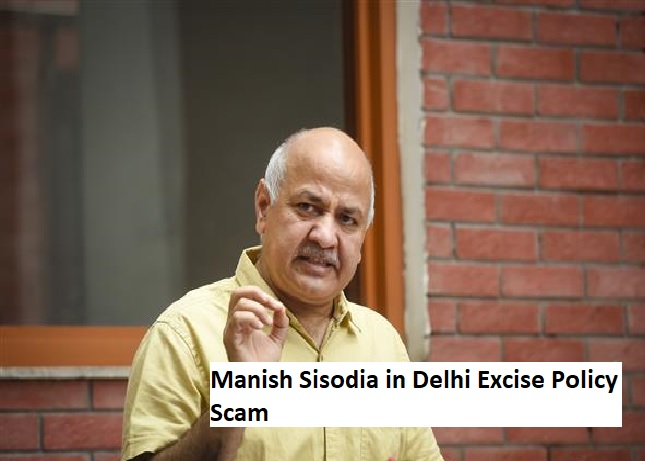


On October 30, the Supreme Court declined bail to former Delhi Deputy CM Manish Sisodia, facing money laundering and corruption charges related to a defunct liquor policy. The AAP leader has been in custody since February, under scrutiny by the CBI and ED.
A bench comprising Justices Sanjiv Khanna and SVN Bhatti pronounced this ruling, handling Sisodia's appeals against the Delhi High Court's bail denial in CBI and ED cases. The Supreme Court had taken up his petitions in July and recently reserved its judgment.
Justice Khanna stated, "We've partially resolved legal queries. Certain aspects remain doubtful. However, the potential transfer of Rs 338 crores has some basis. Thus, bail is denied." He added, "While we deny bail, we emphasize that if the trial progresses inadequately in the next three months, Sisodia can reapply for bail, as they've assured a swift trial within six to eight months."
Earlier this month, Singhvi, representing Sisodia, asserted that no concrete money trail implicates the legislator. He argued that there was no evidence linking Sisodia to money laundering as per Section 3 of the Prevention of Money Laundering Act, 2002. Regarding the liquor policy, Singhvi contended that it was a collective decision aimed at curbing private manufacturers' monopolies, increasing revenue, and reducing excessive profits. He emphasized Sisodia's low flight risk and inability to influence witnesses, arguing that the bail conditions had been satisfied.
During the court hearing, the Supreme Court raised an important issue regarding the omission of the political party that supposedly gained from the alleged excise policy scam. This inquiry, initially aimed at addressing the legal question of potential co-conspirators' culpability, led to widespread media speculation about the potential involvement of the Aam Aadmi Party. In response to press inquiries, Additional Solicitor-General SV Raju firmly emphasized that anyone found with evidence against them would face consequences from the central agencies.
Throughout the extensive hearing, the court also posed several significant questions to the investigating agencies concerning Manish Sisodia's alleged involvement in financial irregularities associated with the formulation and execution of Delhi's liquor policy. These inquiries underscore the court's commitment to a thorough examination of the case and its desire for clarity and accountability in the investigation. The matter remains complex and politically charged, with legal and evidentiary aspects still in question, and the court's scrutiny serves as a reminder of the seriousness of the allegations and the need for a comprehensive inquiry.
During a previous hearing, ASG Raju informed the bench about the Enforcement Directorate's contemplation of implicating the Aam Aadmi Party in the money laundering case. This potential move would involve invoking Section 70 of the Prevention of Money Laundering Act to examine the party's vicarious liability in connection with the liquor scandal. ASG Raju reiterated the gravity of Sisodia's alleged offense, highlighting his role as the deputy chief minister overseeing 18 portfolios, including exclusive control of the excise policy. He argued that there is substantial evidence of Sisodia's involvement in money laundering.
ASG Raju also pointed to a significant, unexplained increase in wholesalers' profit margins under the excise policy, which rose from 5 percent to 12 percent, resulting in substantial losses to both the public treasury and consumers. This additional profit margin is being considered as potential proceeds of a criminal activity. Additionally, the law officer alleged that Sisodia had tampered with evidence, citing, among other things, a missing mobile phone belonging to the former deputy chief minister. ASG Raju argued that, even if there were prima facie grounds for bail, it should be denied due to the risk of evidence tampering.
Following the law officer's submissions, Justice Khanna raised concerns about the trial delays. In both the CBI and ED cases, the commencement of arguments on charges has been notably absent. The judge emphatically stated that Sisodia cannot be held in custody indefinitely and that arguments should have started immediately after the charge-sheet was filed. Justice Khanna inquired about the reasons for the delay and when the arguments would begin.
In response, ASG Raju pointed to applications under Section 207 of the Code of Criminal Procedure, which involve the inspection of documents not relied upon by the prosecution, as a primary cause of the delay. He apprised the bench of this aspect, underscoring the reasons for the trial's slow progression.
During the hearing when the court reserved its verdict, Singhvi notably emphasized that there were no allegations of bribery against his client in the initial offense under the Prevention of Money Laundering Act. He stressed that the charge against Sisodia, which pertained to a 220 crore bribe related to liquor policy changes, was not part of the initial offense. In response, Justice Khanna cautioned against proceeding against the legislator based on assumptions, stating, "Mr. Raju, if it is not part of the initial offense that this bribe was paid, you may face difficulties in proving the PMLA charge. If you had claimed that a bribe was paid for altering the policy, yes, but you cannot create a predicate offense in your PMLA case. We cannot rely on assumptions. Whatever protections are granted by the law will be fully upheld."Top of Form
AS ASG Raju tried to counter this by referencing Section 66(2) of the PMLA, which permits the Enforcement Directorate to inform the jurisdictional police about new information, Justice Khanna retorted, "But you haven't done it, so we won't rely on presumption."
TAGS: ASG Raju Section 66(2) PMLA Enforcement Directorate Jurisdictional police